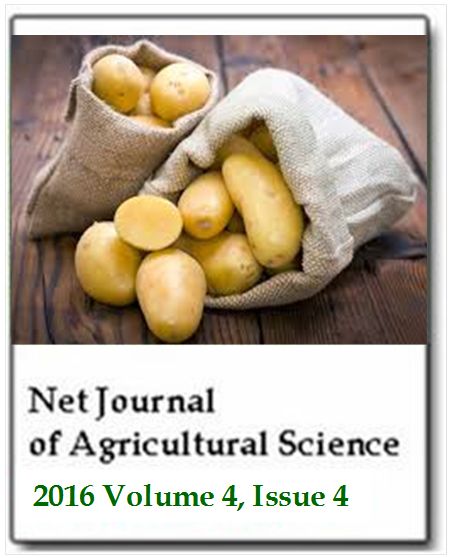A comparative pilot production of dry season green pepper using organic, inorganic and a combination of inorganic and organic fertilizers in the University of Nigeria farm, Nsukka, Enugu State, Nigeria
Otum Chukwuma Ume, Cynthia Onunka and Chizoba OranuNet Journal of Agricultural Science
Published: November 16 2016
Volume 4, Issue 4
Pages 63-66
Abstract
The experiment compared the profitability of dry season green pepper production using inorganic fertilizer, organic manure and the combination of both organic and inorganic fertilizers at the crop science farms, University of Nigeria, Nsukka. There were three experimental fields, each field consists of four plots of 2 m × 2 m and the whole experimental space used was 45 m2. There were 8 stands for the green pepper seedlings in each plot and their planting distance was 50 cm × 50 cm. Enterprise budget analysis was employed in determining the gross margin and net farm income. Result of the study showed that the combination of both organic and inorganic fertilizers in green pepper production incurred the highest production cost (₦8477) and net loss (₦5632). The use of organic manure has the highest yield (₦4500) and the lowest percentage gross loss (-37.41%) implying, the use of organic manure as the best practice for green pepper production. Production scale and market constraints, both affected profitability and economic viability of the dry season green pepper production. In view of the low return to scale from production, more lands should be developed by communities and made affordable to potential and active green pepper farmers. Arable lands along perennial waters could be made communal to remove restrictions faced by family inheritance and finally, the leasable lands should be made cheap.
Keywords: Dry season, green production, inorganic fertilizers, organic fertilizers, profitability.
Full Text PDF
ISSN: 2315-9766
